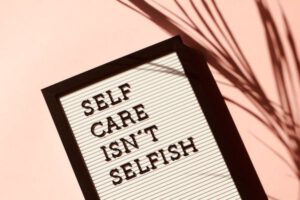Work Smart, Stress Less
Work Smarter: Managing Stress for Better Health and Performance in Healthcare
In today’s fast-paced healthcare environment, stress is ever-present. Managing the impact of long-term stress on job performance is critical for healthcare professionals. Understanding how stress affects our bodies and how to unclutter our lives is essential for maintaining both mental and physical well-being.
The Impact of Stress on Healthcare Professionals
Healthcare workers are especially vulnerable to chronic stress due to the nature of their work. Long hours, emotionally charged environments, and high-stakes decisions can take a toll. Prolonged stress affects not only your personal well-being but also your professional performance.

Physiological Effects of Prolonged Stress
When stress becomes chronic, it leads to several harmful physiological effects:
- Digestive Problems: Constant stress interferes with digestion, leading to issues like indigestion, heartburn, and even more severe conditions like irritable bowel syndrome (IBS).
- Heart Disease: High levels of stress raise blood pressure and increase the risk of heart disease, which is one of the leading causes of death worldwide, especially among healthcare workers who are on their feet for long hours.
- Cognitive Decline: Stress impacts memory, concentration, and decision-making abilities. For healthcare professionals, these are critical skills for patient care, making stress management even more essential.
- Anxiety and Depression: Emotional health is significantly affected, leading to increased anxiety and depression, which can further reduce work satisfaction and patient care quality.
Stress and the Nervous System
Prolonged stress doesn’t just affect the digestive system or heart—it jangles the entire nervous system. When you’re constantly in fight-or-flight mode, your nervous system becomes overtaxed, leading to:
- Mental and Physical Fatigue: Over time, stress drains energy reserves, leaving healthcare workers mentally and physically exhausted.
- Muscular Tension: Stress triggers chronic muscle tension, which can lead to physical pain and discomfort—something especially problematic for healthcare workers who need to remain active and mobile
The Role of Stress Hormones
When the hypothalamus triggers stress hormones like adrenaline and cortisol, it primes your body for action. While these hormones help in immediate crisis situations, over time, they can wreak havoc:
- Adrenaline: Increases heart rate and blood pressure, providing a quick burst of energy, but when consistently elevated, it contributes to cardiovascular problems.
- Cortisol: Elevates blood sugar to give the brain more energy, but prolonged exposure suppresses the immune system and disrupts digestion and reproductive processes, leading to long-term health issues.

Why Stress Prevention is Key in Healthcare
Preventing stress is more effective than trying to cure its effects. Over millennia, our bodies have developed stress responses that were once useful for survival. However, in the modern healthcare environment, prolonged stress is more harmful than helpful.
Individual Stress Thresholds in Healthcare
Each healthcare professional has a unique stress threshold, influenced by personality, temperament, and emotional stability. While some thrive under pressure, others may experience burnout more quickly. Understanding these differences is critical for both individual well-being and team dynamics.
Avoiding Quick Fixes and Finding Real Solutions
Healthcare workers often turn to quick remedies to alleviate stress, such as:
- Pills or Alcohol: These may provide temporary relief but can lead to long-term health problems.
- Negative Habits or Emotional Withdrawal: These coping mechanisms are harmful in the long run and often exacerbate stress rather than relieving it.
Addressing the Root Causes of Stress
Many stress management programs focus on relaxation techniques like meditation, exercise, or mindfulness, but they don’t always address the root cause. For healthcare professionals, it’s important to dig deeper:
- Is it Your Attitude?: Sometimes, our perception of situations worsens stress. Are we overreacting or being too hard on ourselves?
- Is it Behavior?: Certain behaviors, like overworking or neglecting self-care, might need to change.
Identifying the underlying causes of stress allows healthcare workers to develop practical strategies for lowering stress and improving health outcomes.

Practical Steps for Uncluttering Life and Reducing Stress
Healthcare professionals can take concrete steps to reduce stress levels and unclutter their lives:
- Prioritise Tasks: Focus on high-impact activities that make a difference in your work.
- Practice Mindfulness: Stay present in the moment to avoid being overwhelmed by future concerns.
- Exercise Regularly: Physical activity is a proven stress reliever that can improve both physical and mental health.
- Create a Support System: Surround yourself with colleagues, friends, or mentors who can provide emotional support.
Take Control of Your Stress for a Healthier Future
Stress doesn’t have to control your life or affect your performance as a healthcare professional. By identifying stress triggers, modifying your behavior, and applying practical stress-management strategies, you can improve your well-being and the quality of care you provide to patients.
Visit UBIS Health Jobs www.ubis.com.au for more articles, resources in the healthcare industry and enhancing your professional performance.


